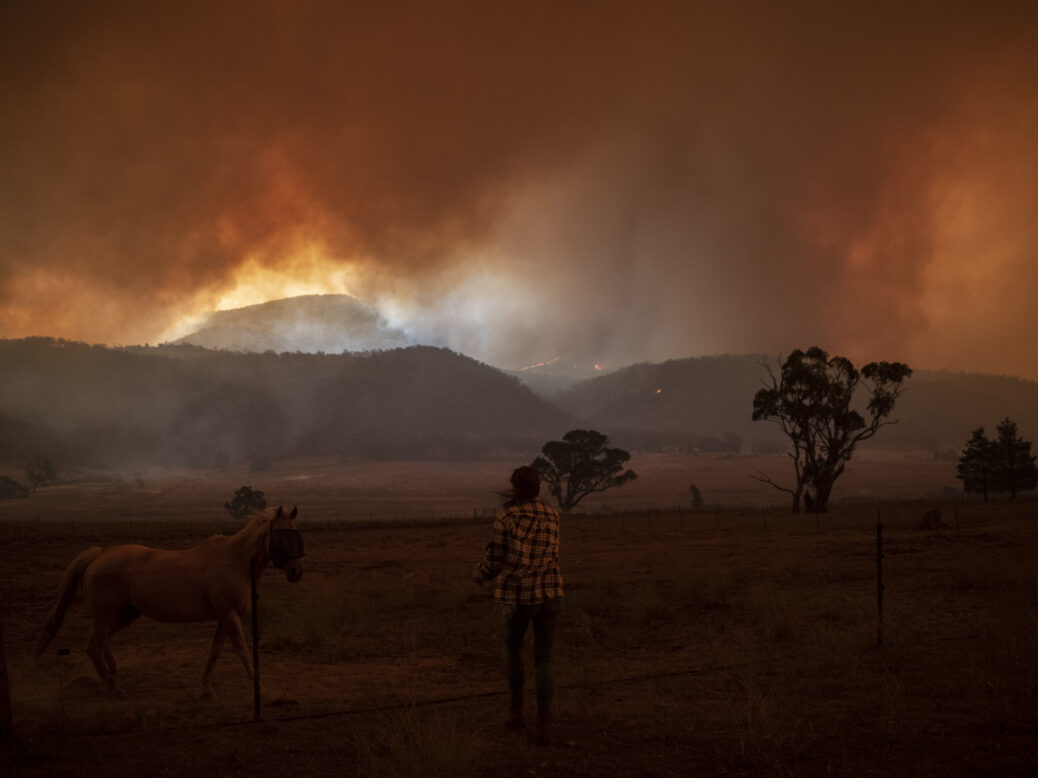
The phrase “Cop” is an impenetrable acronym shared by multiple international summits. It stands for “Conference of Parties” to a UN convention. Within the last month we’ve had the better-known Cop27 in Egypt, linked to the UN Framework Convention on Climate Change (UNFCCC), and the less widely covered Cop19 in Panama, which involves parties to the Convention on International Trade in Endangered Species. The numbers refer to how many of each have been held.
Cop15, on biodiversity, being held from 7 to 19 December in Montreal, Canada, will gather representatives from the 190-odd nations who are party to the Convention on Biological Diversity. And while Cop15 sits somewhere in between the above two in terms of name-recognition, it is arguably the more important: a once-in-a-decade opportunity to set a new global deal for nature.
“It may be one of the most important meetings humanity has ever had,” Alexandre Antonelli, Kew Gardens’ director of science, told Spotlight. “We have a very narrow window of opportunity to halt the loss of biodiversity by 2030 and reverse its decline by 2050; we may never have that chance again.”
The sense of urgency is rooted in what the UN has described as today’s “unprecedented” and “accelerating” species extinction rate. Around a million animals and plants (out of 8.7 million known species) are at risk of disappearing within decades. Over half of global GDP ($41.7tr) has been estimated by the insurer Swiss Re to be dependent on a healthy natural world.
Yet too many political leaders are still failing to meet the challenge, or even show up. Rishi Sunak, the Prime Minister, is not planning to attend Cop15 (despite growing pressure from MPs) and his government has failed to deliver on a long list of environmental promises. This includes missing a legislative deadline to set targets for nature’s recovery and pressing ahead with the Retained EU Law Bill, which puts over a thousand pieces of environmental protection law in jeopardy. As a result, the Wildlife Trusts charity has warned that Thérèse Coffey, the Environment Secretary, “risks major embarrassment on the world stage”.
Jennifer Morris, CEO of the Nature Conservancy, noted that there have been more climate Cops than biodiversity ones, and more countries have ratified the former convention than the latter. The US is still not a party to the UN convention on biodiversity because there would have to be a two-thirds majority for it in the Senate and the Republican party has long been opposed. Joe Biden, the Democratic president, has committed the US by executive order to protecting 30 per cent of the world’s land and seas by 2030, which will give strength to those fighting for a similar 30×30 target at Cop15, but not having full US clout behind the process isn’t helping its momentum.
For these reasons Cop15 may be the most important summit many have still never heard of. Making it count should be on every policymaker’s agenda. Here’s five challenges those who show up in Montreal this December must address.
Targets must be ambitious but fair
Clear, measurable targets are key, Morris suggests. “Since 2015 governments have had the legally binding Paris Agreement to serve as a collective guiding star on climate. Both the public and private sector have rallied around the 1.5°C goal, and the emissions reduction targets that came out of Paris are relatively straightforward to understand. The Convention on Biological Diversity, meanwhile, has not yet had its ‘Paris moment’.”
The proposed framework to be adopted at Cop15 comprises 21 targets and ten “milestones” to be achieved by 2030. Headlining these is the 30×30 target for protecting 30 per cent of land and sea by 2030. As Antonelli points out, however, nuance also needs to be brought to its definition, “so that resources go to protecting the most biologically important areas, rather than the cheapest”, and so as to prioritise quality over quantity of areas protected. For an example, he points to recent Kew research on Madagascar, a biodiversity hotspot in which around 10 per cent of land is designated as protected and which would benefit much more from extending monitoring capacity and training, rather than simply expanding the area under protection.
Nations need to own their pledges
Part of the reason previous biodiversity goals have disappointed is that there has not been sufficient pressure on individual nations or leaders to uphold commitments. Li Shuo, Greenpeace East Asia’s senior policy adviser, told reporters that the process could take inspiration from the Paris Agreement, which includes “established rules to facilitate implementation” of national targets.
Businesses need clear regulation
Charmian Love, director of advocacy at Natura & Co (which owns the cosmetics company the Body Shop), argued at a press event that there should be mandatory requirements for all businesses and financial institutions to assess and disclose their impact on nature. Tackling subsidies for polluting industries and agreeing a clear global goal for nature protection would help to create the kind of level playing-field that businesses want.
Finance must be found now, not later
Paying scientists to monitor species populations and rangers to patrol protected areas takes money, but failing to act now will only make future action more expensive. According to a 2021 report by the Natural History Museum, delaying action by ten years would double the finance needed to halt decline.
Local and indigenous rights also need protection
As the ecologist Robin Wall Kimmerer reminded me earlier this year, areas managed by indigenous peoples typically have more biodiversity than those in state ownership – yet new protection targets risk shutting out the very people who have ensured the land stays worth protecting. “An awful lot of Western conservation is based on a separation of humans and nature,” she told me, “whereas an indigenous world-view says that humans are not just consumers – we can be co-creators of biodiversity and abundance when we do it right.”
[See also: On the eradication of species]





